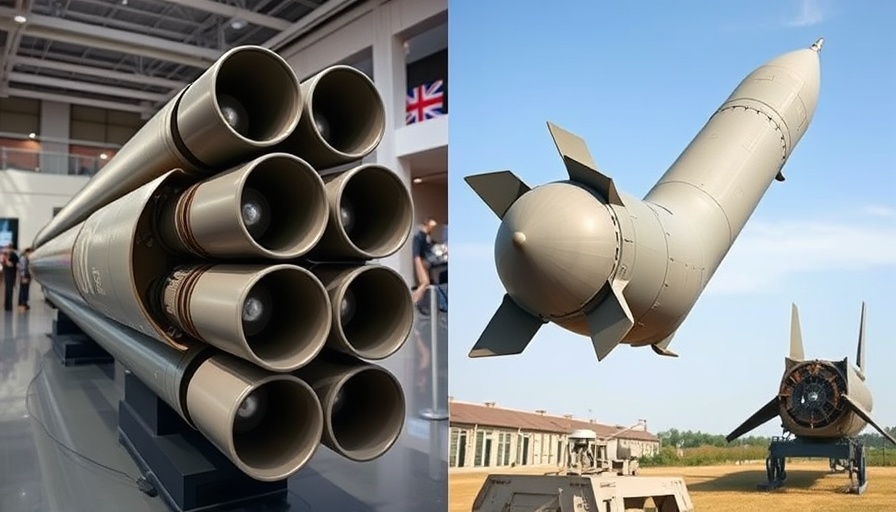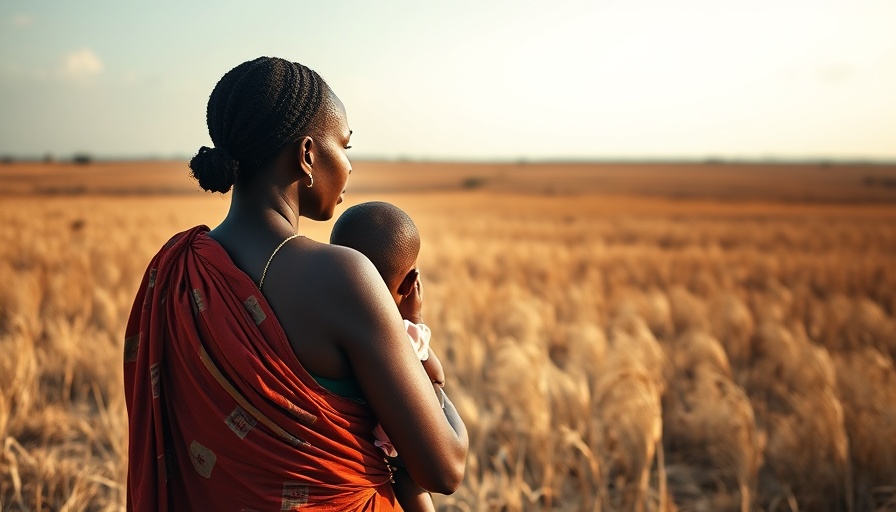
Ominous Acknowledgment: Iranian Missiles Strike Israeli Bases
In a significant admission, an Israeli military official has confirmed that Iranian missiles successfully hit Israeli Defense Forces (IDF) bases during the recent conflict. This revelation, reported first by Reuters, marks a pivotal moment in understanding the ongoing regional tensions. Although the official indicated that only a few sites were affected and continue to operate, the implications are vast. It underscores Iran's evolving military capabilities and the potential threats it poses not only to Israel but to stability in the Middle East as a whole.
Historical Context: The Longstanding Rivalry
To understand the weight of this news, one must consider the historical backdrop of Israel-Iran relations. Since the Islamic Revolution in 1979, Iran has pledged its support for groups hostile to Israel, including Hezbollah in Lebanon and Hamas in the Gaza Strip. This conflict extends beyond traditional warfare, encompassing cybersecurity incidents, proxy warfare, and economic sanctions. Such a context amplifies the significance of Iranian missile capabilities, signaling an escalation in both rhetoric and action.
Social Impact: Concerns Among Communities
This development is not just a military concern but also raises issues within communities, especially among Christians in the region. For mission-minded individuals and humanitarian-focused groups, the security of Israel often parallels their advocacy for peace and justice. As news of missile attacks spreads, it deepens anxieties about safety and the stability of the region, prompting many to reconsider their involvement in advocacy and support efforts.
Global Reactions: The International Community Responds
Internationally, reactions to this acknowledgment have been pronounced. Allies such as the United States and various European nations express concern over Iran's military advancements. The calls for diplomatic solutions and potential new sanctions have begun to echo in diplomatic circles, underscoring that these developments could alter the landscape of Middle Eastern politics significantly. Analysts predict that this could lead to a push for increased military support for Israel from Western nations to counterbalance Iranian aggression.
Future Predictions: What Lies Ahead?
The fallout from these missile strikes will undoubtedly influence future military and diplomatic strategies. Experts predict a possible arms race in the region, as neighboring countries may feel compelled to strengthen their arsenals in response to Iran's escalated threat. This situation may also compel Israel to take a more proactive stance regarding its military operations, potentially leading to greater direct confrontations.
Counterarguments: Different Perspectives
While the Israeli military's acknowledgment underscores a clear perception of threat, some critics argue that exaggerating the impact of Iranian missiles could serve political agendas. They advocate for a more nuanced understanding of military conflicts, emphasizing the importance of dialogue and peace-building measures rather than escalating tensions. Such perspectives remind readers that amid the chaos, there remains a critical need for interfaith dialogue and reconciliation to address the core issues.
Conclusions: Bridging Faith and Politics
For globally aware Christians and advocates for social justice, these developments necessitate a deeper engagement. Understanding the geopolitical nuances allows for informed advocacy, encouraging interfaith dialogues that emphasize peace and coexistence. The conflict challenges faith communities to respond with compassion, urging action rooted in love, engagement, and support for affected individuals.
As discussions continue, readers are encouraged to remain informed and active in conversations about peace in the Middle East. Engaging in dialogues that promote understanding can foster solutions that bridge divides rather than entrench hostilities.
 Add Row
Add Row  Add
Add 








Write A Comment